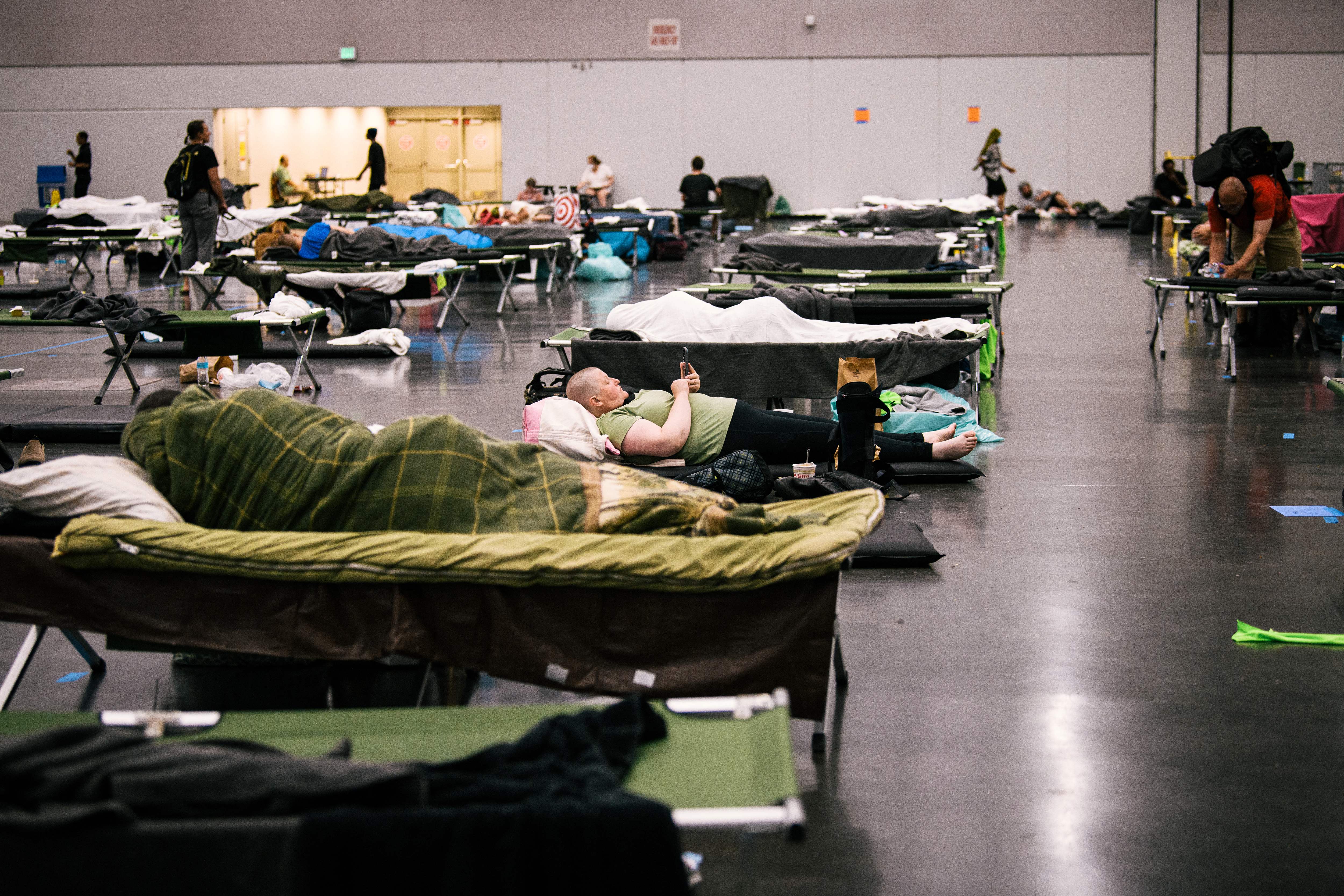US Pacific northwest heatwave kills almost 200 people
Authorities say that the record-breaking heatwave has killed those who lived without air conditioners or fans.

Your support helps us to tell the story
From reproductive rights to climate change to Big Tech, The Independent is on the ground when the story is developing. Whether it's investigating the financials of Elon Musk's pro-Trump PAC or producing our latest documentary, 'The A Word', which shines a light on the American women fighting for reproductive rights, we know how important it is to parse out the facts from the messaging.
At such a critical moment in US history, we need reporters on the ground. Your donation allows us to keep sending journalists to speak to both sides of the story.
The Independent is trusted by Americans across the entire political spectrum. And unlike many other quality news outlets, we choose not to lock Americans out of our reporting and analysis with paywalls. We believe quality journalism should be available to everyone, paid for by those who can afford it.
Your support makes all the difference.Nearly 200 people have died in two US states because of a record-breaking heatwave in the Pacific northwest region.
Health authorities in Oregon and Washington confirmed the deaths of 116 and 78 people respectively. The heatwave swept through these states as well as Canada’s British Columbia province, where as many as 500 are believed to have died so far.
The Associated Press reported that in Portland’s Multnomah County – where the highest number of deaths occurred – the victims of the heatwave had no air conditioners or fans and they died alone. The youngest victim was 37 years old, while the oldest was 97.
Meanwhile, authorities are trying to study how Oregon can best beat such heat emergencies in future. Earlier in the week, Democrat governor Kate Brown asked agencies to enact several emergency rules to protect workers from the heatwave.
In Washington, data on heatwave-related deaths paints a “striking” picture, according to a report by The Guardian, which said there were seven heat-related deaths in the state between mid-June and the end of August last year. Between 2015 and 2020, the state reported just 39 heat-related deaths during warmer months.
“This huge jump in mortality due to heat is tragic and something many people thought they’d never see in the Pacific northwest, with its most moderate climate,” Dr Scott Lindquist, Washington’s acting state health officer, said in a statement. “But climates are changing, and we see the evidence of that with dramatic weather events, major flooding, historic forest fires, and more,” he added.
In British Columbia, the heatwave has led to wildfires tearing through settlements that are just about 150 km away from Vancouver.
“Our poor little town of Lytton is gone. We loaded everyone up in our vehicles and started driving… we had no power or internet in Lytton and everyone was trying to reach people,” Edith Loring-Kuhanga, an administrator at Stein Valley Nlakapamux school, was quoted as saying by The Guardian.
“This is so devastating – we are all in shock! Our community members have lost everything,” Loring-Kuhanga added.
Meteorologists have been trying to ascertain what caused the heatwave in the first place. Experts believe it was caused by a dome of high pressure over the northwest and worsened by human-caused climate change.
Temperatures broke records by reaching above 115 degrees Fahrenheit (46 Celsius) in Seattle, Portland and many other cities in the region.
Richard Bann, a meteorologist with the National Weather Service’s Weather Prediction Center, said the Pacific northwest “got caught in a region where a series of feedbacks set up these very warm temperatures – no, hot temperatures – with very little cloud cover and very warm temperatures at night too”.
The devastating heatwave has caused untold damage to the marine environment as well. Experts say more than a billion marine animals could have died near Canada’s Pacific shore alone due to the extreme heat.
The heatwave would have been “virtually impossible” without human influence, according to a new analysis by the World Weather Attribution group – a collaboration of climate scientists.
Join our commenting forum
Join thought-provoking conversations, follow other Independent readers and see their replies
Comments